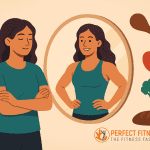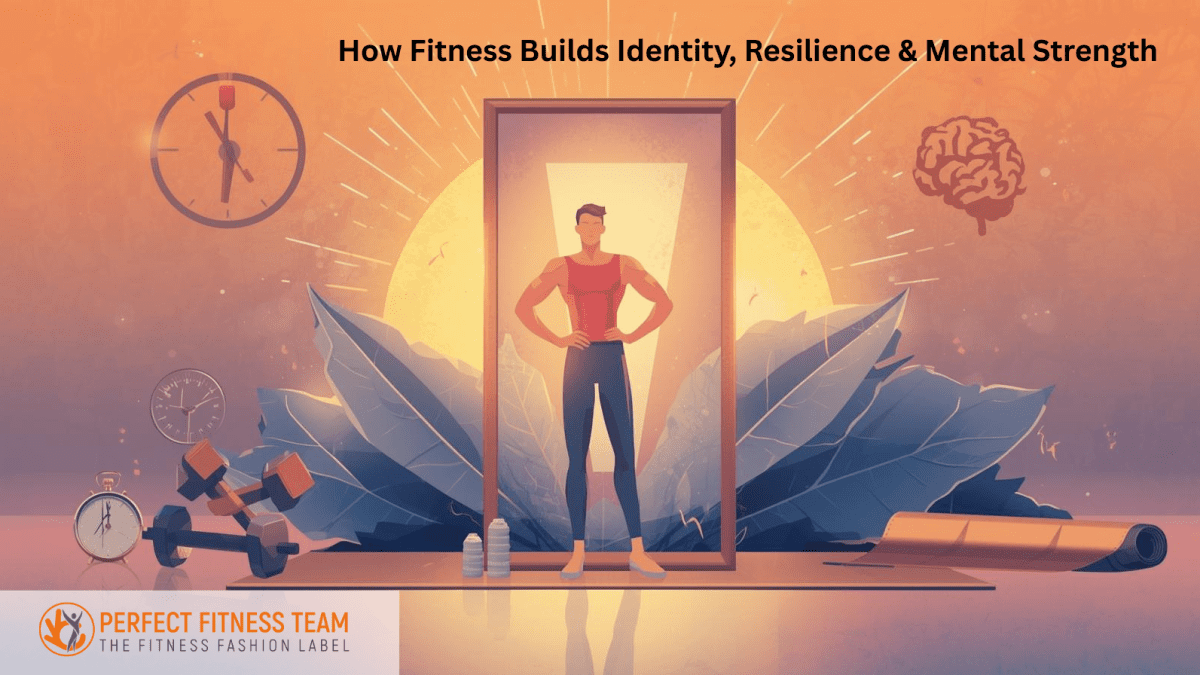


Beyond the Mirror — How Fitness Builds Identity, Resilience & Mental Strength
September 20, 2025


Eating with Intention: How Ethical, Smart Consumption Shapes Health and Character
October 4, 2025Introduction
Looking fit is one thing — becoming the person you want to be is something much deeper. Fitness acts not just as physical training, but as a framework for growing identity, mental toughness, and resilience. Let’s dive into what science says, how the process works, and how to make it meaningful.
What Research Shows
- Exercise Identity Strengthens Over Time
A 16-week exercise intervention showed that participants increased their exercise identity — meaning they saw themselves more as “someone who exercises.” Importantly, those with stronger identity were more likely to maintain exercise behaviors at six-month follow-up. - Physical Activity Boosts Resilience
Several studies (e.g. The Contribution of Physical Exercise to Brain Resilience) have demonstrated that consistent exercise improves stress resilience, mood regulation, and even cognitive function. Exercise is linked with better brain plasticity and stronger mental health markers. - Resilience Independent of Sleep & Mental Health Under Normal Conditions
One study during the COVID-19 lockdown found that people with higher exercise levels showed stronger resilience and quality of life—even when controlling for sleep quality and mental health. - Body Appreciation, Stress & Exercise Identity
Research indicates that appreciating your body (having a positive body image) can influence how strongly you identify as someone who exercises. However, high perceived stress can weaken this relationship.
How Fitness Shapes Identity & Mental Strength
Here are the key ways fitness helps you grow, beyond the physical:
- Self-Identification: When you begin to see yourself as an exerciser, your decisions align more with that identity. You make choices (meal, rest, workouts) consistent with who you want to be.
- Mental Resilience: Facing physical discomfort, pushing through fatigue or doing things even when motivation is low builds your ability to handle psychological stress.
- Consistency & Habit Formation: Small daily actions backed by identity and purpose lead to strong habits. Over time, showing up becomes less about struggle and more about integrity.
- Improved Emotional Regulation: Exercise stimulates neurotransmitters, helps regulate mood, reduces anxiety symptoms, and improves cognitive control. This supports better handling of emotional ups and downs.
- Positive Body Image & Self-Respect: Studies show that people who appreciate their bodies, irrespective of size or stage, are more likely to exercise and maintain activity if stress is managed. This feeds back into identity and motivation.
Practical Tips to Build Fitness-Driven Identity & Resilience
- Set micro-goals tied to your identity. (“I eat well,” “I move daily,” “I pause for rest.”)
- Track progress not just in physical metrics but in habits and mindset (e.g. “I felt stronger today,” “I recovered better,” “I showed up when I didn’t want to”).
- Use accountability: community, workout partner, or coach. Social reinforcement helps identity internalize.
- Manage stress: mindfulness, rest, proper sleep. Without stress control, identity can weaken.
- Celebrate non-physical wins: consistency, energy, mood, mental clarity.
Conclusion
The mirror reflects your physique—but fitness reflects something more: the person you’re becoming. A version of you that is disciplined, resilient, self-respecting, and mentally strong. When you align your habits with your identity, you don’t just train your body; you elevate your life.

